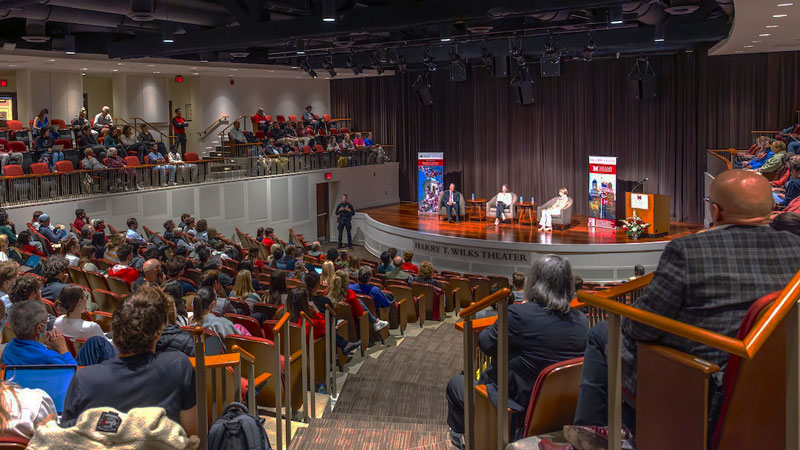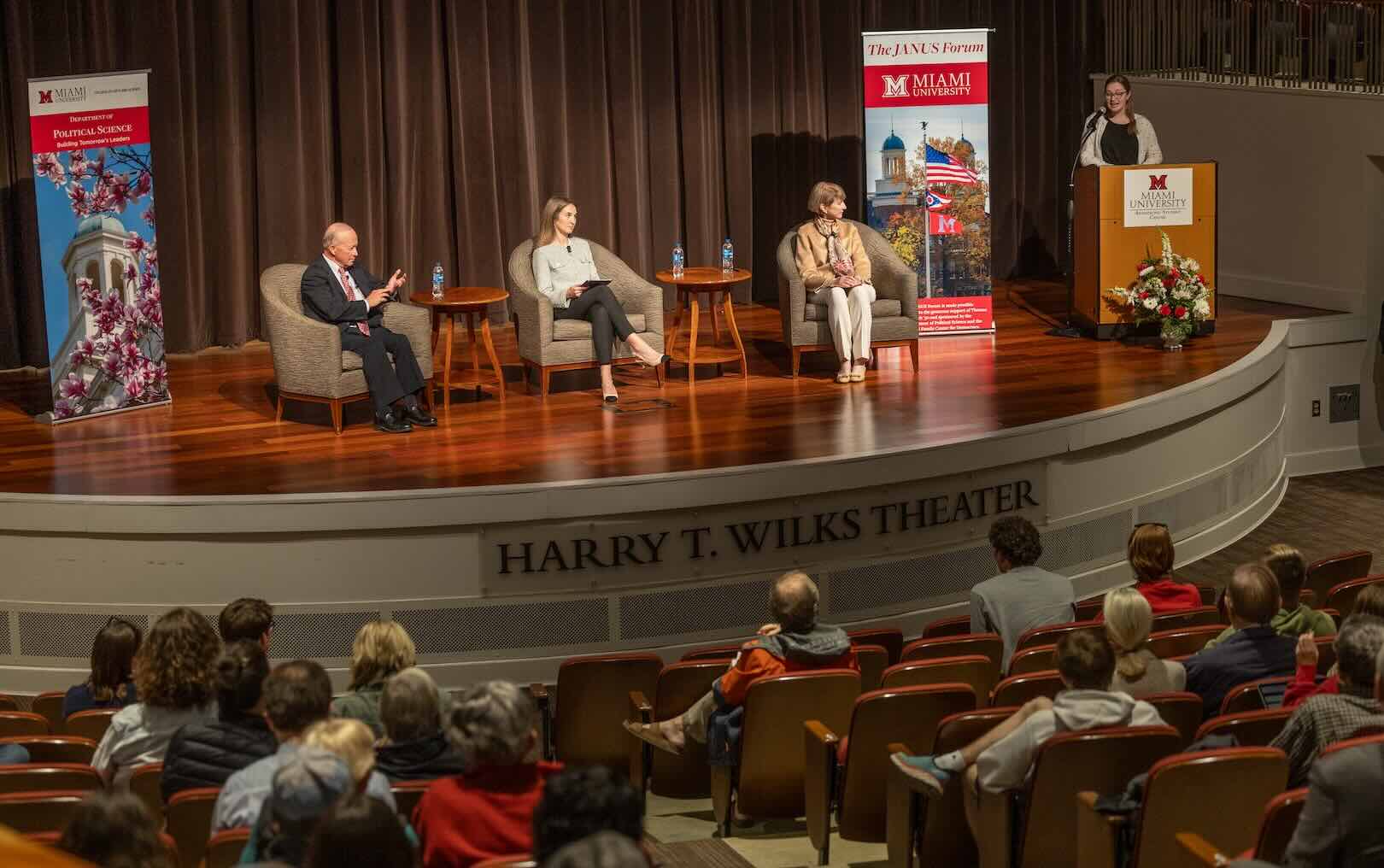“Is Higher Ed Woke or Broke?” Fall 2023 Janus Forum features former presidents of Purdue University and The Ohio State University
Mitch Daniels and Dr. Kristina Johnson debated topics such as Ohio Senate Bill 83, the meaning of “woke,” student debt cancellation, and required DEI training on college campuses.

“Is Higher Ed Woke or Broke?” Fall 2023 Janus Forum features former presidents of Purdue University and The Ohio State University
On the evening of Nov 13, students and faculty alike piled into Wilks Theater to watch two experienced leaders in higher education debate various issues plaguing higher education in Ohio and beyond. Former Indiana governor and Purdue University president Mitch Daniels and former president of The Ohio State University Dr. Kristina Johnson engaged in a spirited discussion that was moderated by junior Political Science major Minnie Warfield.
Daniels has had an incredibly successful career, both in the private and public sectors. He held the office of Indiana governor for two terms, served in the Bush administration, and made sweeping progress towards lowering the cost of higher education at Purdue University. He has also had many corporate successes.
As the former president of The Ohio State University, Johnson also has a remarkable amount of professional accomplishments, including serving as President Obama’s undersecretary of energy, provost at Johns Hopkins University, and dean of the Duke University College of Engineering.
“The young people I met this afternoon represent a living counter-example to what many Americans believe is troubling higher education,” Daniels said during his opening remarks. Many of their concerns, he added, such as the belief in its value and the necessity of a college degree, have never been so low and are legitimate.
“There is a huge opportunity and responsibility of those in higher ed to address these concerns so that they are not addressed by people who know less, care less, and will therefore be more care-less,” he said.
Johnson demonstrated her concern for the future of American universities by speaking about Ohio Senate Bill 83 (SB 83). The bill, which as of this writing has narrowly passed and is headed to the Ohio House for a vote, aims to limit DEI-related programs and policies, regulate policy related to intellectual diversity and controversial beliefs, and update regulation of faculty workload and evaluation.
“Students from all over the world want to come study here…and that is because of our intellectual freedoms,” said Johnson. “I think it is time for universities to push back on a political narrative that was designed to separate us.”
“Suggesting there is a lack of intellectual diversity at American universities is a fundamental misunderstanding of what takes place,” she added.
Warfield asked if the panelists agreed with the concepts presented in SB 83.

introduces the Janus Forum guests, with student
moderator Minnie Warfield seated in the center of
the stage.
Daniels stated that he believes it is “ill-advised” and that it is a “perfect example of a reaction of a system that is becoming more and more dissatisfied.” He also noted that while he doesn’t believe it to be happening at Miami or either of the universities the two panelists led, there is a large percentage of students that feel intimidated and reluctant to speak out against majority opinions.
When asked what her definition of the word “woke” was, and why this word has become so polarizing, Johnson referred to the Janus Forum’s title by indicating that she might represent “woke” while Daniels might represent “broke.”
“It goes back almost 100 years to the 1930s, someone who is alert to prejudice and racism,” said Johnson. “Someone this weekend finally told me what ‘woke’ stands for, and it is ‘wanting only kindness and empathy.’”
“That is not what it means to most people who use the term these days,” Daniels said. “Unless you make an effort, you will not have a lot of contact with people from different backgrounds. We already see this, I believe, in the chasm that exists between people who subscribe to that complex of beliefs that are loosely described as ‘woke’.”
The speakers also discussed their views on student debt, mandatory training for diversity and inclusion, and the importance of a four-year degree in society today.
“Our topic this fall strongly resonated with our community and drew significant support from both students and faculty,” said Warfield, the student moderator. “Overall, it was yet another intellectual forum that achieved its goal of fostering civil political discourse.”